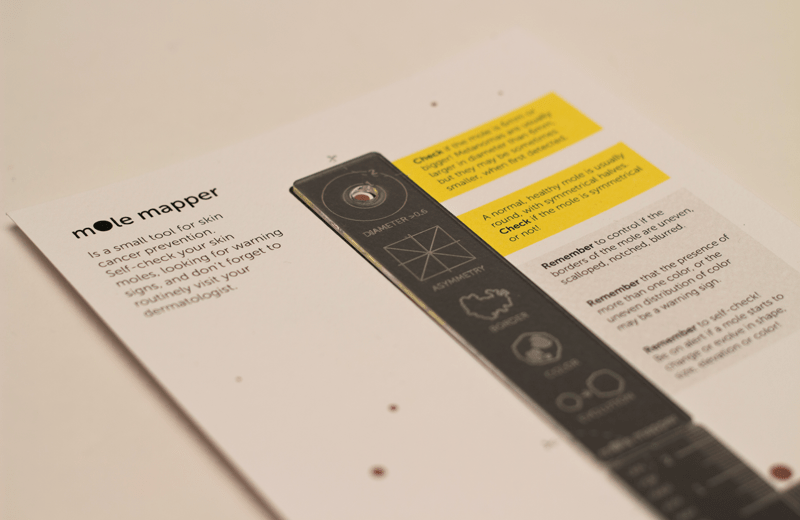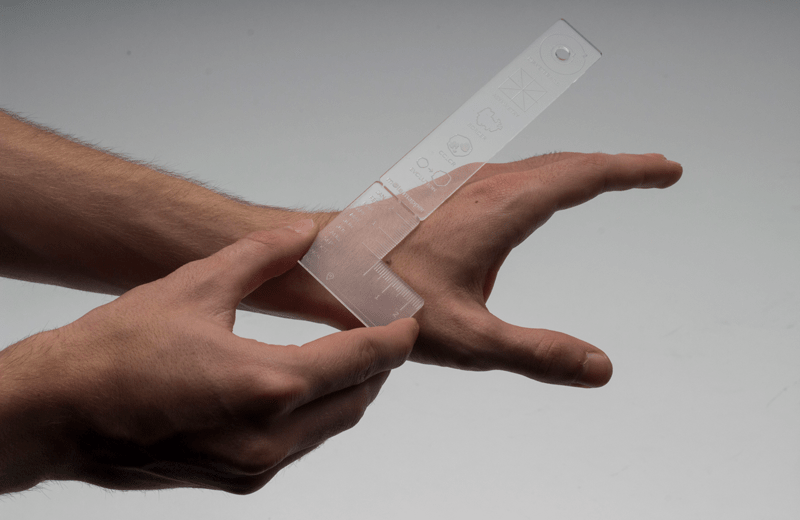About the project
Mole Mapper is a small tool for skin cancer prevention. It can be used to self-check all skin moles, looking for warning signs.Throughout the years, is important to examine your own skin, in particular if you have many skin moles and fair skin. Self-exams can help you identify potential skin cancers early, when they can almost always be completely cured. For a successful self-exam you obviously need to know what you are looking for: that is the aim of Mole Mapper. It is a small tool, made with lasercut PMMA scraps, that summarizes what physicians call “the ABCDE of melanoma”, the warning signs to recognize changes in the moles on your body.
With Mole Mapper you can:
• Check if your moles are bigger than 6mm
• Check if your moles are asymmetrical
• Be reminded to control moles’ borders, color, and evolution in time
• Easily snap a picture of your mole, to control it is evolution and dimensions
MoleMapper comes with a postcards with all instructions. The postcard doubles as packaging for the little object. It is innovative because it offers an inexpensive tangible way to promote awareness about melanoma prevention. It is important to identify moles that look or feel different than the others on your body, and to routinely visit a dermatologist. Go in a Fab Lab and make one for yourself, or to give as gift!
Ilaria Vitali
Ilaria is a product designer graduated from Politecnico di Milano, and currently PhD candidate. As a freelance researcher, she mainly deals with technologies (iot), smart products, user studies, trend research and market analysis.
Mila Stepanovic
Mila is an Industrial Designer and currently working at Politecnico di Milano where she is researching at the design department. In addition she works as a lecturer in the Master’s Degree in Design and Engineering at the Design Development Studio course and at the Master in Design Engineering and Innovation at Poli.design consoritum, which is part of Polytecnico di Milano. Mila is part of some national and international patents and has contributed various scientific articles. Furthermore she collaborates in several research projects, as well as a freelance designer for companies.
Patrizia Bolzan
Patrizia studied design at the Politecnico di Milano, where he received his PhD in Design with a thesis that investigates the relationship between Additive Manufacturing and design in its practices, entitled “Additive Manufacturing Technologies for Materialization Processes in Design Practice”. He deals with the design of the product system of graphics and fittings, integrated with digital technologies. His projects pay particular attention to usability, to the perception of soft-qualities and rely on the creation of self-made study models and prototypes.

